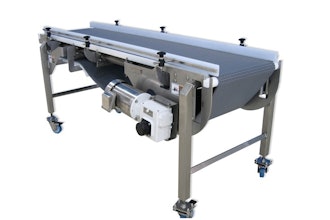
Despite promising predictions of a more stable economy this year, it seems 2024 could be just as unpredictable as the last four years. Inflation actually rebounded in December, putting manufacturers who are desperate for a break from economic chaos once again on edge about what to expect.
Instead of waiting for things to “return to normal,” it may be time for manufacturers to face the fact that this is normal. Unpredictable conditions, unexpected twists and uncertain macro factors are persistent and companies need to anticipate new challenges and adapt.
Accepting the reality of constant change and developing an agile and flexible mindset are essential, and companies must invest in proactive strategies in order to adapt to whatever challenge comes next.
Here are five strategies to help manufacturers overcome uncertainties and achieve operational excellence in 2024:
1. Invest in staff
People are the most important part of your business and investing in their success drives performance and productivity. But too many companies offer a 30-day training, put new hires on the production line alongside experienced staff and then wonder why they can’t keep up, get frustrated and quit.
It’s not laziness or unwillingness to work. it’s lack of adequate training to perform to those expectations. Instead, invest in thorough onboarding and longer shadowing time to build employee confidence, improve team engagement and rapport and reduce 90-day churn.
2. Examine every process
Too often manufacturers get caught up in the status quo, but “the way we’ve always done it” is the antithesis of agility and adaptability. Take a hard look at everything in your process and examine points of impact to identify challenges.
Look for ways to streamline the entire Order-to-Cash process from raw materials acquisition and production planning to shipping and distribution. Most importantly, ask employees who work on the production line for their input on improving, eliminating or accelerating steps.
3. Consider reshoring or nearshoring
Shipping and logistics disruption have been an ongoing struggle due to geopolitical instability. One way to mitigate supply chain risk is through reshoring or nearshoring wherever possible. While bringing procurement back to the Americas might cost more in labor, it’s likely to be nullified by faster lead time, lower shipping costs and long-term manufacturing stability.
You’ll also want to create contingency plans with alternative suppliers and prepare to act on ‘what if’ scenarios with multiple failure modes in case something breaks down.
4. Be purposeful with technology
Technology is essential, but rushing into new capabilities like AI can be costly and futile if you’re adopting it simply because everyone else is. Instead, approach technology with a crawl-walk-run method.
First, make sure the tech you choose will deliver the expected outcome. Then, start small, implement logically and prove as you go to build momentum and avoid wasting resources. Consider the data and infrastructure needs before you get started to be sure your enthusiasm doesn’t exceed your capabilities.
5. Reduce waste
Environmental, social and governance (ESG) programs might seem complex, but the solutions can be quite simple. Every company can reduce energy consumption by 15-20% with small changes like upgrading to high-efficiency LED lighting or installing occupancy sensors to reduce burn time. Also consider the environment for your people.
Be honest: would you want to work there every day? Or are you operating a “3D” factory—one that’s dark, dirty and dangerous? Better housekeeping and improved lighting can create a safer, more pleasant work environment with fewer accidents, which lowers operating costs.
Waiting for things to “return to normal” means waiting to get overtaken by the competition. Instead, focusing on agility and adaptability can make it less likely you’ll get blindsided by the next crisis and position you to come out on top.






















